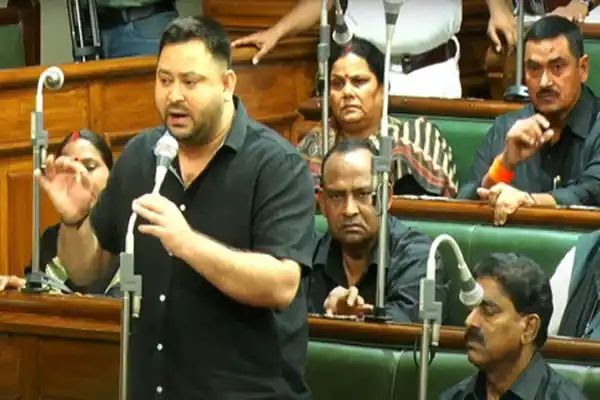RJD leader Tejashwi Yadav has launched a new political debate across the country by indicating the boycott of the Bihar assembly elections. Fighting elections or not to contest, it naturally depends on the will of political parties.
However, it has different meanings in the Bihar scenario.
Tejashwi Yadav is the main opposition leader in Bihar. If other opposition parties also get support on ‘election boycott’, it can change the situation in the state and it can directly affect the upcoming Bihar assembly elections. Actually, participation and competition in elections is the basis of democracy, but it is from here that if the opposition in Bihar ‘boycott’, can elections be held in this situation?
If there is no opponent in any one post or one seat, the candidate is elected unopposed, but whether a similar rule is applicable even if the opposition’s ‘election boycott’ is important.
Article 324 of the Constitution states that the Election Commission has the right to maintain electoral rolls and conduct elements independent and fairly. Article 324 provides that the Lok Sabha and each state assembly election will be based on adults. The Election Commission of India lies the right to hold the presidential election under Article 324. However, there is no mention in the rule to stop the election process on ‘boycott’ by political parties.
The latest example in this regard can be the mayor’s election of Delhi. In April 2025, the Aam Aadmi Party boycotted the mayor’s election in Delhi. Despite this, the election process was completed and Raja Iqbal Singh was elected the mayor of Delhi. The Congress participated in the mayor’s election and got only 8 votes. In this election, BJP councilor Jai Bhagwan Yadav was elected deputy mayor from Begumpur ward.
The 1989 Mizoram Assembly Elections, the 1999 Jammu and Kashmir assembly elections, the Haryana Assembly Elections, some political parties were also held after partial ‘boycott’ and the results also came.
On the legal level, the Supreme Court has also given several examples, in which elections were held despite the ‘boycott’ of political parties. It also includes the 1989 Mizoram election. The Supreme Court had commented, “The election process may not be the basis for cancellation of an election until the election process is valid and until the constitutional standards follow the constitutional standards.”
However, postponing the election on ‘election boycott’ can be a compulsion for the Election Commission. It is also clear that the recognition of a political party may also be in danger if the election symbol of 1968 can be understood by order if not contesting for a long time. According to this order, the recognition of the political party can be canceled in the event of constant distance from elections or not getting minimum vote percentage.
-IANS
